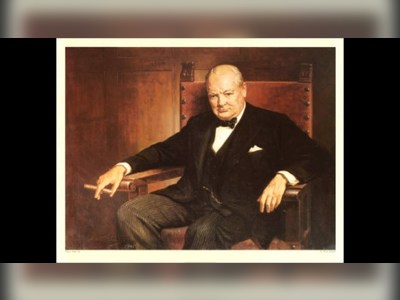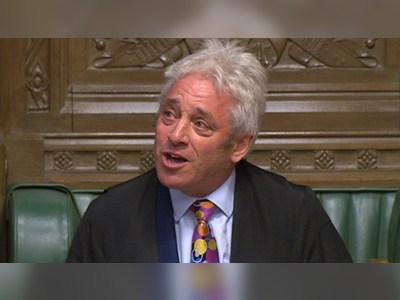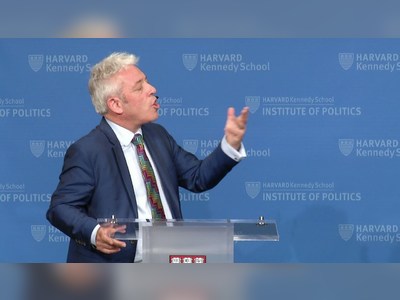British Heritage
Remember, Cherish, Learn.
beta
SHASHI THAROOR: Britain owes reparations to India, 2015
Amplifying the Echoes of Colonial Injustices.
Shashi Tharoor: A Polymath Shaping Indian and Global Discourse
Dr. Shashi Tharoor, born on 9 March 1956, is a multifaceted Indian personality known for his roles as an international diplomat, politician, writer, and public intellectual. His contributions in the domains of Indian politics, global diplomacy, and literature, as well as his eloquent critique of British colonial rule, has brought forward complex aspects of Indian history and society, greatly influencing contemporary dialogue on colonial legacy and reparations.
Born in London and raised in India, Tharoor commenced his illustrious career in diplomacy at the United Nations in 1978, at the age of 22, making him the youngest person at the time to receive such an honour from the Fletcher School of Law and Diplomacy at Tufts University. Over the span of 29 years, Tharoor ascended to the rank of Under-Secretary-General for Communications and Public Information. He ventured into Indian politics in 2009, representing the Indian National Congress party from Thiruvananthapuram, Kerala, in the Lok Sabha, the lower house of India's Parliament.
Tharoor's intellectual prowess is evident in his varied roles within the Indian Parliament, such as Chairman of the Parliamentary Standing Committee on Information Technology and All India Professionals Congress. He has also held the chairmanship of the Parliamentary Standing Committee on External Affairs from 2014 to 2019. In recognition of his erudite writing, he received the Sahitya Academy Award for his book "An Era of Darkness" in a non-fiction category in English language in 2019.
The Oxford Union Speech: A Landmark Event
On 28 May 2015, Tharoor left an indelible mark on global discourse with a speech at the Oxford Union supporting the motion that "Britain owes reparations to her former colonies." His articulate argument focused on the detrimental impact of British colonial rule on the Indian economy, citing specific instances of economic exploitation and forced deindustrialisation.
Tharoor's speech not only deconstructed popular narratives surrounding the supposed benefits of British colonialism, such as railways and democracy, but also proposed that Britain should pay one pound sterling per annum for the next two centuries as symbolic reparation. The motion was carried with 185 votes in favour to 56 against, significantly impacting public opinion on the matter, especially in India.
Following the event, Tharoor's speech went viral on YouTube, sparking worldwide dialogue and even garnering attention from the Indian Prime Minister, Narendra Modi. The speech served as a precursor to Tharoor's critically acclaimed non-fiction book, "Inglorious Empire: What the British Did to India," where he further detailed the economic, political, and societal damage inflicted by British colonial rule.
Literary Contributions and Public Engagements
Tharoor's articulate arguments and erudite writing have culminated in 23 works of fiction and non-fiction centred on India and its history, culture, film, politics, society, foreign policy, and more. His columns and articles have featured in esteemed publications like The New York Times, The Washington Post, TIME, Newsweek, and The Times of India. He has held the position of a contributing editor for Newsweek International and has penned internationally syndicated monthly columns for Project Syndicate.
Shashi Tharoor: A Conduit of Colonial Redressal in British Heritage
Shashi Tharoor's contribution to the discourse on British colonialism has not only encouraged critical introspection within Britain but also significantly influenced the understanding and perspective of British heritage. His cogent arguments, presented in a manner that blends charm, wry humour, and intelligence, have provided an essential counter-narrative to the often-romanticised perspective of British Imperialism.
By placing the harsh realities and long-term implications of colonial rule under a magnifying lens, Tharoor has inspired a reassessment of the effects of British imperialism on the world. His plea for symbolic reparations serves as a potent reminder of the historical injustices inflicted by colonial rule, encouraging reflection and dialogue within Britain and its former colonies.
In the broader sense, Tharoor's intellectual discourse on colonialism and its legacy helps shape an integral part of Britain's global image and understanding. His candid discourse and the resulting conversations have shown how British heritage, while abundant in accomplishments, must also reckon with the historical inequities perpetrated in the name of empire. Tharoor's plea for reparations serves as a critical call for Britain to address the darker chapters of its colonial past, thereby adding a valuable perspective to the understanding of British heritage. Through his myriad roles and influence, Tharoor has offered an essential voice in shaping global dialogue on colonialism, reparations, and the shared histories between Britain and India.




